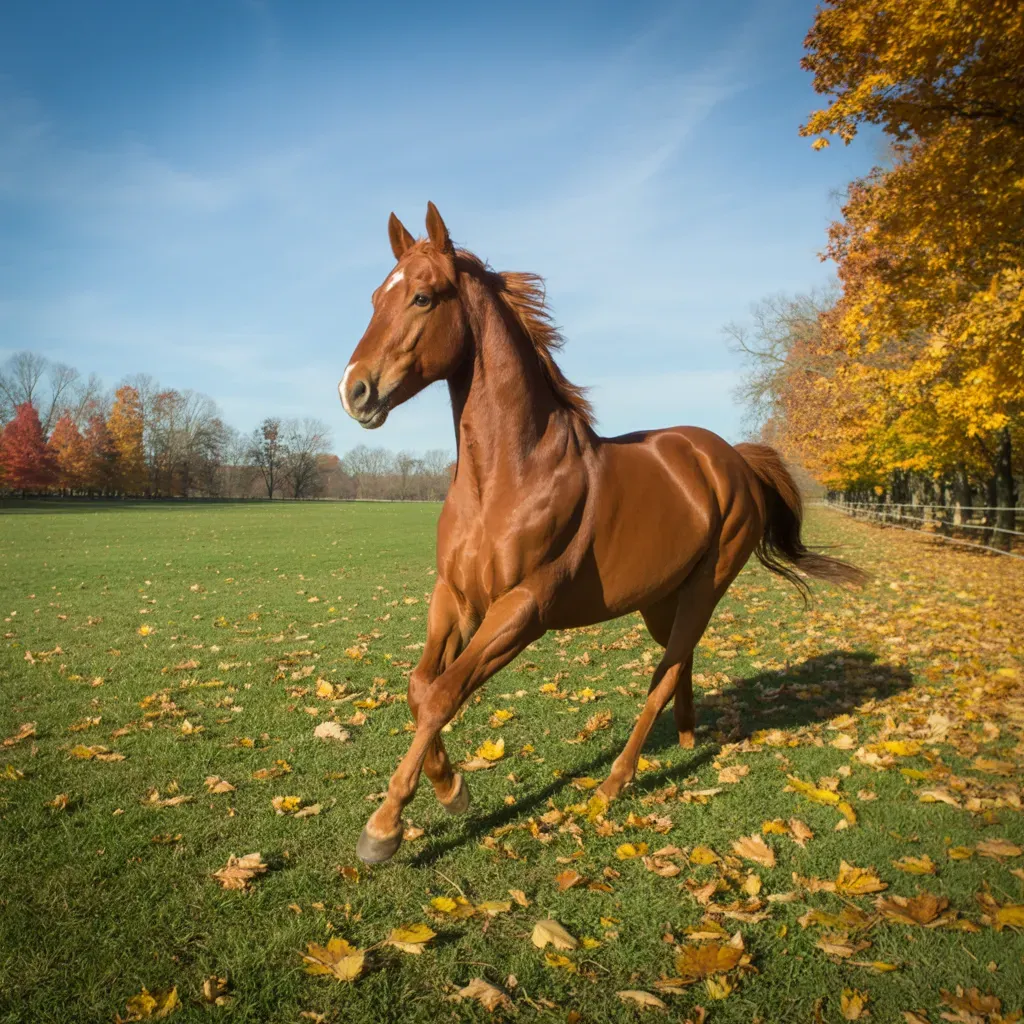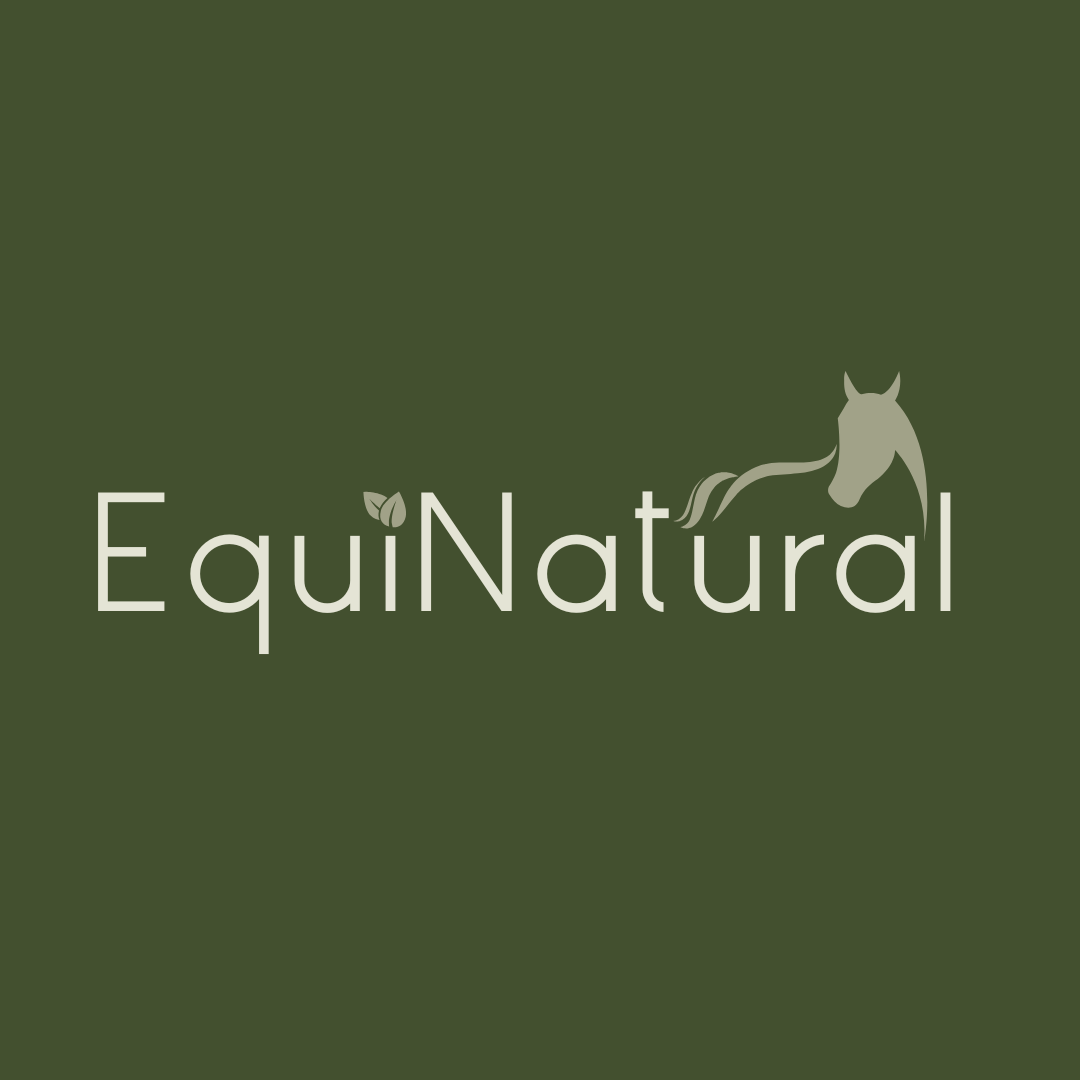The Seasonal Equine Cycle - unlocking nature's rhythms. A proactive approach to sustain equine vitality year-round.
The rhythms of nature - the role of circadian rhythm in equine health
So here we are, the first week of March, and officially the first month of the new Spring season. This is the month of All-Change, and where it all begins - the Seasonal Equine Cycle.
Our horses know it too; horses are instinctive, sensitive beings who absolutely live in the rhythm of nature. Each seasonal change provides a noticeable guideline for a horse's overall health, specifically how (if in the wild) they would naturally maintain their health, and importantly, how they'd also avoid illness.
As a result, each season relates to different system requirements where the related major system organs need to be in optimum health to provide the necessary protection as the seasons change.
This physiological function is hardwired into their DNA to instinctively respond to the changes in the seasons, adapting to the way these changes connect to their physical, emotional, and mental health. This is all regulated by cycles of light (day) and dark (night), sunlight, and temperature. Meet the circadian rhythm - the 24-hr cycle in the physiological process of all living beings - which determines sleeping and feeding patterns, brainwave activity, hormone production, cell regeneration, and numerous other biological activities.
Feeding patterns across the seasons
A horse living in the wild instinctively knows that staying healthy as each season changes is essential for them to respond to their changing needs, regarding nutrition, movement, quality rest and play, muscle recharge - all important elements as the seasons change.
One of the most obvious ways in which a horse responds to these changes is via their feeding patterns. Wild horses typically follow the feast/famine regimen, thriving on green pastures through the summer to build the body fat stores, which enable them to better manage the winter's 'hungry gap', surviving on whatever sparse forage they can find in winter.
Meanwhile, our domesticated horses have the benefit of us carers to manage the winter hungry-gap for them, but even with us in control, we should still be mindful of adjusting feed routines accordingly, to follow and work with the seasons.
Understanding the five-season theory
Here in the UK, even though we’ve got four official seasons, in reality we experience five - Spring, Summer, Indian Summer, Autumn and Winter. Traditional Chinese Medicine also follows this belief, known as the Five-Season Theory (also called the Five-Element Theory). What we call Summer and Indian Summer, TCM calls it Summer and Late Summer.
The Five-Season Theory follows the understanding that all living beings are intertwined with nature, and that depending on the season, specific organs of the body require purifying and toning at specific times of the year to support the body’s balance, with the body’s state of health responding accordingly.
Seasonal care system organ guidelines
- Spring - liver
- Summer - heart/small Intestine
- Late (Indian) Summer - spleen/stomach
- Autumn - lungs/large intestine (liver again)
- Winter - kidneys/bladder
*Note: for our horses we need to take into account the autumn coat change, so we need to add Liver into Autumn as well.
In short, when any organism, whether it's ourselves, our horses, dogs, or whoever, is balanced and in tune with nature, the body experiences health. When it's out of balance and 'polluted', the body experiences ‘dis-ease’ of one sort or another, the word ‘dis-ease’ simply meaning that the body is not at ease.
For us, this means that by working alongside the seasons we can help our domesticated horses stay in tune with the natural way of things and remain healthy and balanced.
Spring
- detoxing and supporting the liver, managing fresh spring grass, and dealing with spring-related health issues
As the earth tilts so that the sun is directly over the equator, this signifies the start of the Vernal, aka Spring Equinox.
Spring represents renewal and regeneration, making it the most significant among the changing seasons.
In the natural world it marks the beginning of new life, and following winter’s typical hungry gap with forage starved of nutrients, accompanied by winter’s illnesses and allergens, the liver has been working overtime to keep the system detoxed and healthy. This means Spring is the time of year to detox, cleanse and boost the health of the liver. It’s also the time of the spring coat change which puts enormous extra strain on the liver due to the associated protein metabolism, so all the more reason to tone the liver.
- After a winter of hay, introduce fresh spring grass slowly and be mindful of the laminitis/colic risk, especially for our EMS horses.
- Changes in the grass chemistry will affect the chemistry of our horses, so if you’re not feeding one already, consider a mineral balancer.
- It's time for the Spring tree pollens and midges, which can wreak autoimmune havoc on affected horses. syndromes.
- Our mares know exactly when spring arrives as they come into season and their hormones start raging to find a mate!
- The spring sun also encourages parasite eggs to hatch, which can have a dramatic impact on our horse’s digestive health and nutrient absorption.
Summer
- keeping horses cool and hydrated, joint care, and dealing with summer allergens
Our planet assumes its most direct tilt into the sun at the Summer Solstice, and energy levels are now at their highest, thriving at this time of year. To support the energy demands, this is the time of year to cleanse and tone the heart, purify the blood and stimulate circulation.
- It’s hay season! Time to be mindful of not feeding the new hay too early.
- High summer means it’s hot out there! On the hotter, more humid days, beware of grass pollens triggering respiratory havoc for those affected horses.
- Horses can lose substantial quantities of minerals in sweat, so adding salt to the feedbowl is all the more important.
- Hard ground can also mean joint/hoof discomfort.
Indian Summer
- metabolism starts to change, preparing for the autumn coat change
Indian Summer days tend to be hotter and muggier, high in humidity and with a feeling of heaviness in the air. The metabolism recognises the daylight is getting shorter, so it's time to boost the metabolism and cleanse the gut system.
- If we're having an indian summer heatwave, this is also the time when the allergenic effects of grass pollens can hit the hardest.
- Gradually the intense heat of summer should start to lower, and the daylight hours noticeably shorten. The autumn coat change is just around the corner, so time for liver support to manage the excess protein biotransformation.
- If you’re seeing coat quality issues during the coat change, this might be time to consider a full-body detox with our OptimaCARE detox programme. It's also not a bad time to think about a detox to prepare the body for what winter may throw at us.
Autumn
- winter preparation, focusing on lung health, and dealing with nutritional changes
Preparation and elimination are the traits of this season. This is the time to tone the lungs as a preventative for winter allergens, as well as the hindgut which is not only the horse's body's central heating system, but also produces the vital nutrient metabolites to help the horse thrive through winter.
- As the days grow shorter and temperatures drop, the nutritional value of our grazing plummets. Time to consider replenishing the diminishing forage vit.E and EFA levels.
- This is the time of year that vets will encourage an ACTH test to determine a Cushing's diagnosis. ACTH levels naturally rise at this time of year to prepare the metabolism for the autumn changes, so beware of false positive tests to avoid a false Cushing's test and a unnecessary Prascend prescription (as well as eye-wateringly expensive, not to mention a lifetime commitment). If you're unsure, test again a couple of months later, or the following spring at the latest.
- Some horses are prone to dropping weight/condition over winter, so consider a higher protein feed for our poor-doers through autumn/winter.
- Beware autumn falling leaves and acorns as they can represent a toxic risk.
- Time to check turnout in readiness for winter, and have hay supplies in place.
- In some areas in the UK we may get the first hard frost, aka 'killing frost’, which is hugely beneficial as it can kill many equine parasites. Check the weather forecast, and time an FEC so you know to worm before the hard frost, which will then kill off any excreted larvae.
- Keep an eye out for winter respiratory issues and stiff joints due to changes in air temperatures.
- Some horses may need time to adjust back to a hay diet, which means they might be at higher risk of impaction colic.
- As if we need reminding - Mud!
Winter
- maintaining energy levels, hydration, and colic prevention
The cold and darkness of winter forces us to slow down, replenish energy and conserve strength. Winter can be a tough time for toxin overburden, so now is the time to focus on toning kidney function as they excrete the water-soluble toxins.
The kidneys are also responsible for regulating just about everything in the body, but probably the most vital regulation is the water:salt balance which affects the critical cellular osmotic pressure, hence why adding salt into the equine diet at this time of year is vital to maintain hydration.
Once we hit the ‘depths’ of winter we're at just 7-hours of daylight each day, and now at risk of freezing temperatures, which means horses are less likely to drink icy cold water. This brings the very real concern for the risk of impaction colic, so all the more reason to feed
salt which will encourage them to drink.
- Consider soaking feed with warm water to aid hydration.
- Check body condition - horses burn up to 15-20% more calories trying to maintain their internal body temperatures, with older horses in particular having to work harder to thermo-regulate in the winter months.
- Keep your horse’s internal furnace burning by upping the hay volume. The hindgut is the horse’s central heating system, and the more fibre that’s digested in the hindgut by bacterial fermentation, the more warmth is generated.
Finally, by the time we hit the end of February the daffs should have been out already, and we’ll be seeing nearer 11-hours daylight again. Before we know it, the first signs of Spring will be around the corner again. 😉










